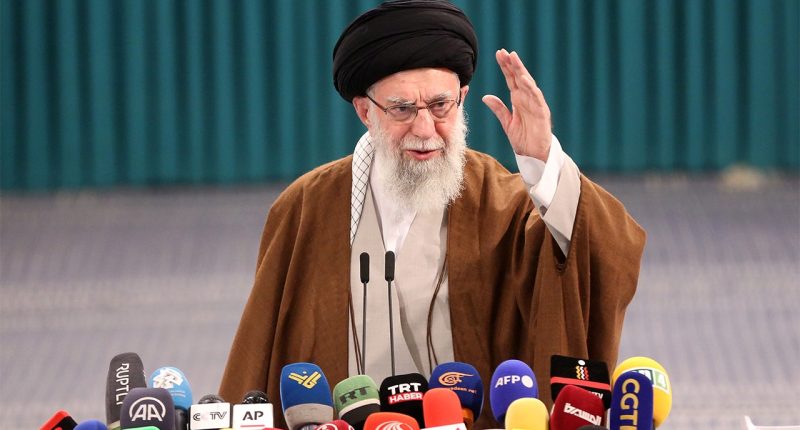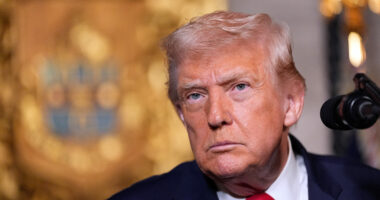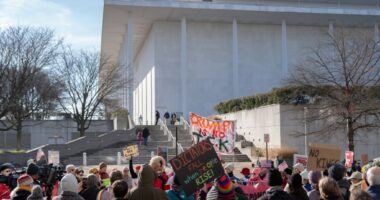Share this @internewscast.com
In the wake of the 12-day war between Israel and Iran, the regime appears to be turning inward — escalating repression with chilling speed.
Kasra Aarabi, the director of IRGC research at United Against Nuclear Iran, suggests that the Islamic Republic is moving quickly towards a “North Korea-style model of isolation and control.”
Aarabi stated to Fox News Digital that this shift signifies a “domestic isolation” with significant repercussions for Iranians. He described the regime as increasingly totalitarian, with suppression levels now reaching unprecedented heights, unlike anything observed before.
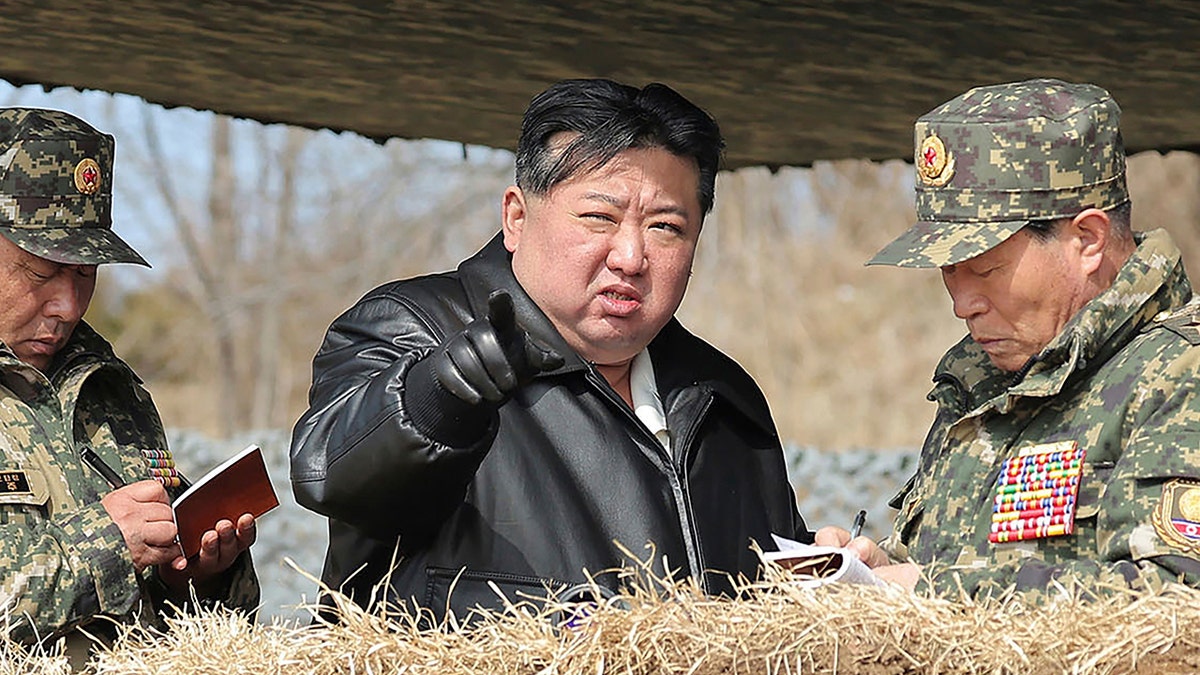
North Korean leader Kim Jong Un, center, oversees artillery exercises in North Korea on March 7, 2024. (Korean Central News Agency/Korea News Service via AP, File)
“Repressing the people at home is easy. That’s something they can do. So it’s not unlikely that Iran could become more insular, more autocratic, more repressive — and more similar to, let’s say, a North Korea — than what it is today. That might be the only way they see to preserve the regime: by really tightening the screws on the Iranian people, to ensure that the Iranian population doesn’t try to rise up and topple the regime,” he told Fox News Digital.
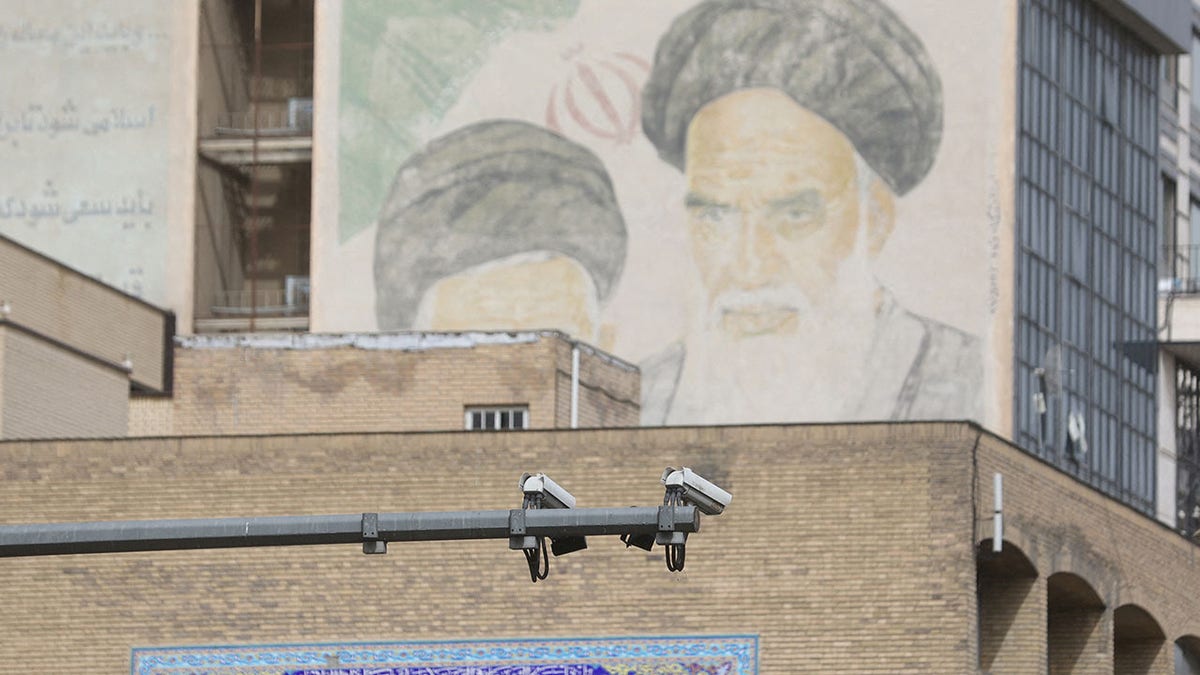
CCTV cameras are seen in a street in Tehran, Iran, April 9, 2023. (Majid Asgaripour/WANA (West Asia News Agency) via REUTERS)
Inside the regime’s power structure, the fallout from the war is just as severe. Aarabi said that the Islamic Revolutionary Guard Corps (IRGC) is facing an internal crisis of trust and an imminent purge. “These operations couldn’t have taken place without infiltration at the highest levels,” he said. “There’s immense pressure now to clean house.”
The next generation of IRGC officers — those who joined after 2000 — are younger, more radical and deeply indoctrinated. Over half of their training is now ideological. Aarabi said that these newer factions have begun turning on senior commanders, accusing them of being too soft on Israel or even collaborating with Mossad.
“In a twist of irony, Khamenei created these extreme ideological ranks to consolidate power — and now they’re more radical than he is,” Aarabi said. “He’s struggling to control them.”

A police motorcycle burns during a protest over the death of Mahsa Amini, a woman who died after being arrested by the Islamic Republic’s “morality police,” in Tehran, Iran, on Sept. 19, 2022. (WANA (West Asia News Agency) via REUTERS)
A purge is likely, along with the rise of younger, less experienced commanders with far higher risk tolerance — a shift that could make the IRGC more volatile both domestically and internationally. With Iran’s conventional military doctrine in ruins, terrorism may become its primary lever of influence.
“The regime’s three pillars — militias, ballistic missiles, and its nuclear program — have all been decapitated or severely degraded,” Aarabi said. “That leaves only asymmetric warfare: soft-target terrorism with plausible deniability.”
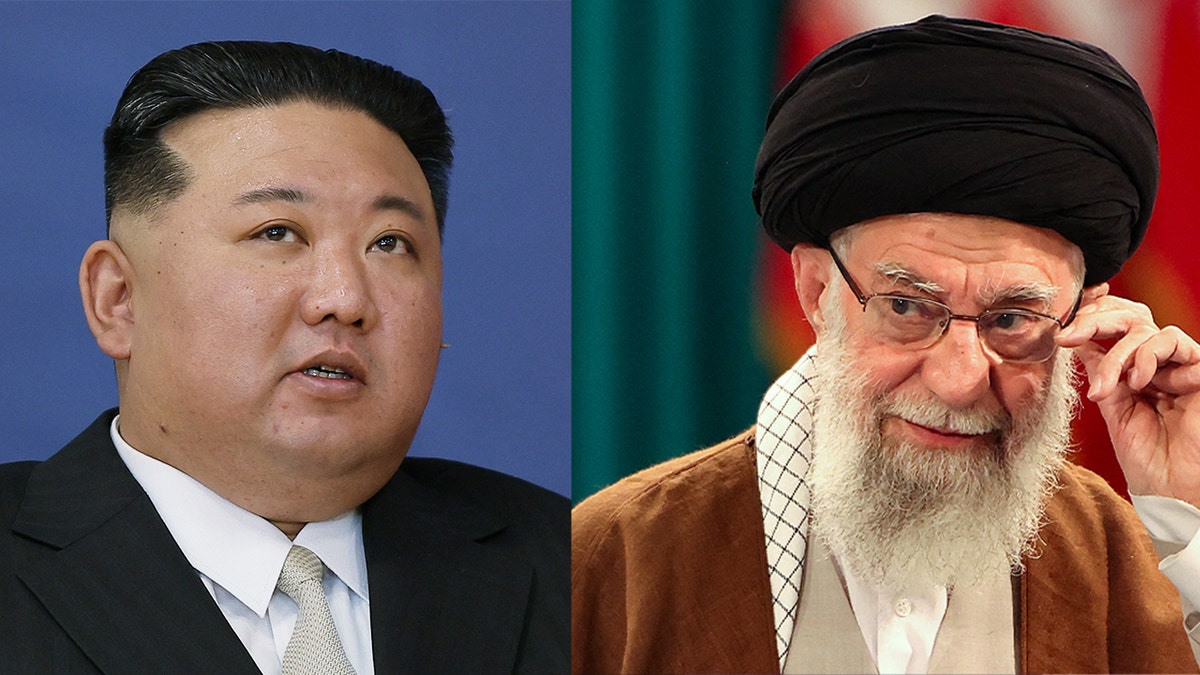
North Korean leader Kim Jong Un, left, and Ayatollah Ali Khamenei. (AFP via Getty Images)
Despite the regime’s brutal turn inward, Aarabi insists this is a sign of weakness, not strength. “If the Islamic Republic were confident, it wouldn’t need to crush its people this way,” he said. “It’s acting out of fear. But until the regime’s suppressive apparatus is dismantled, the streets will remain silent — and regime change remains unlikely.”
